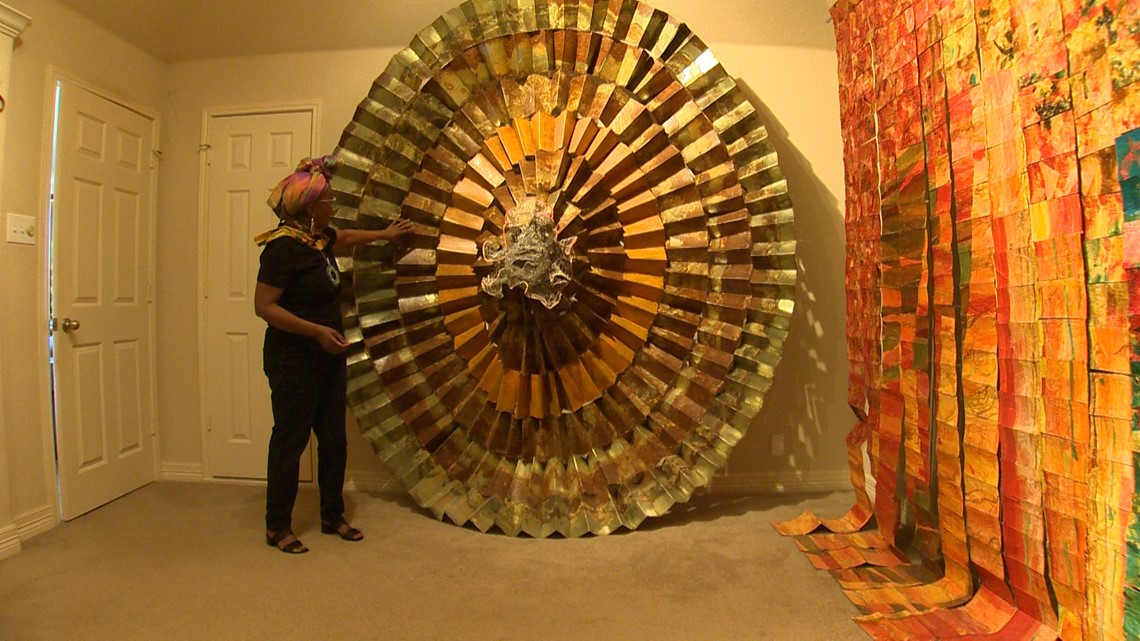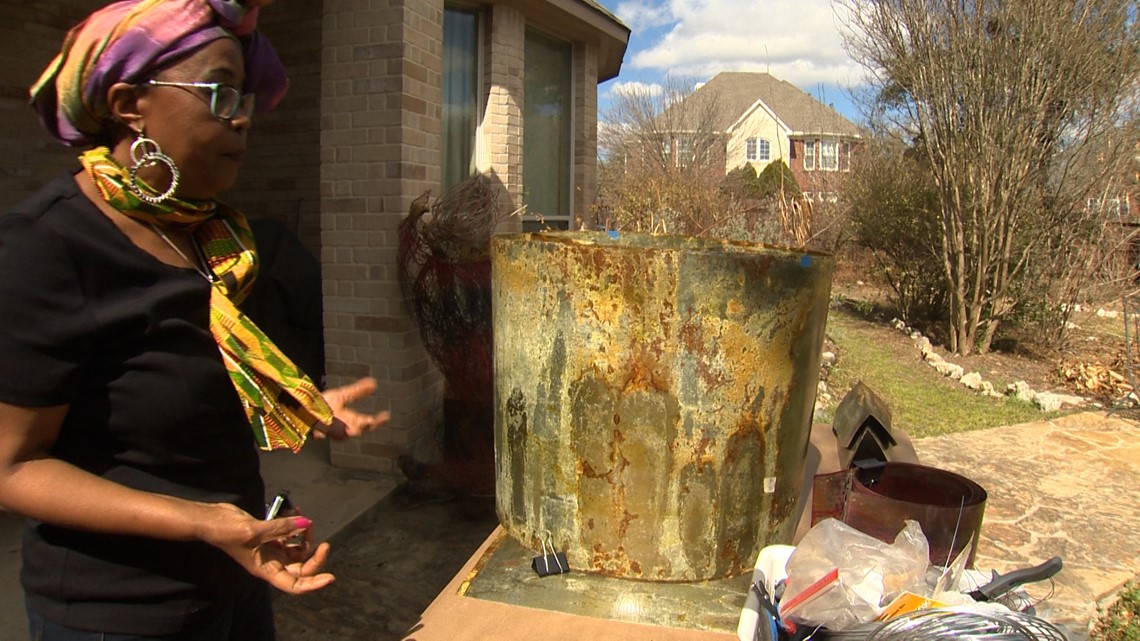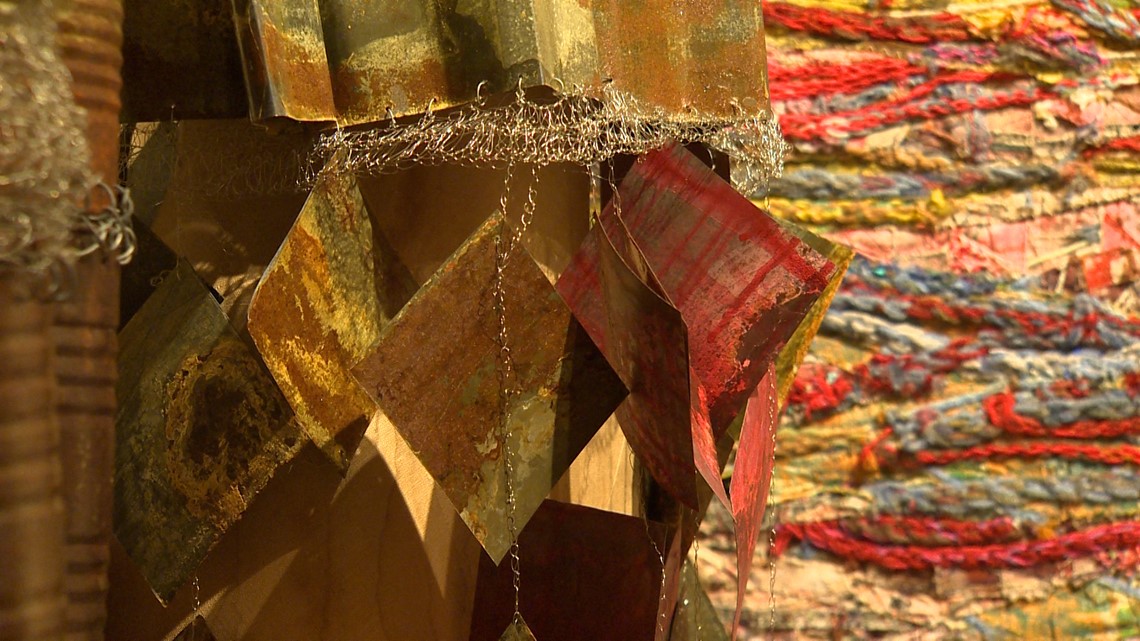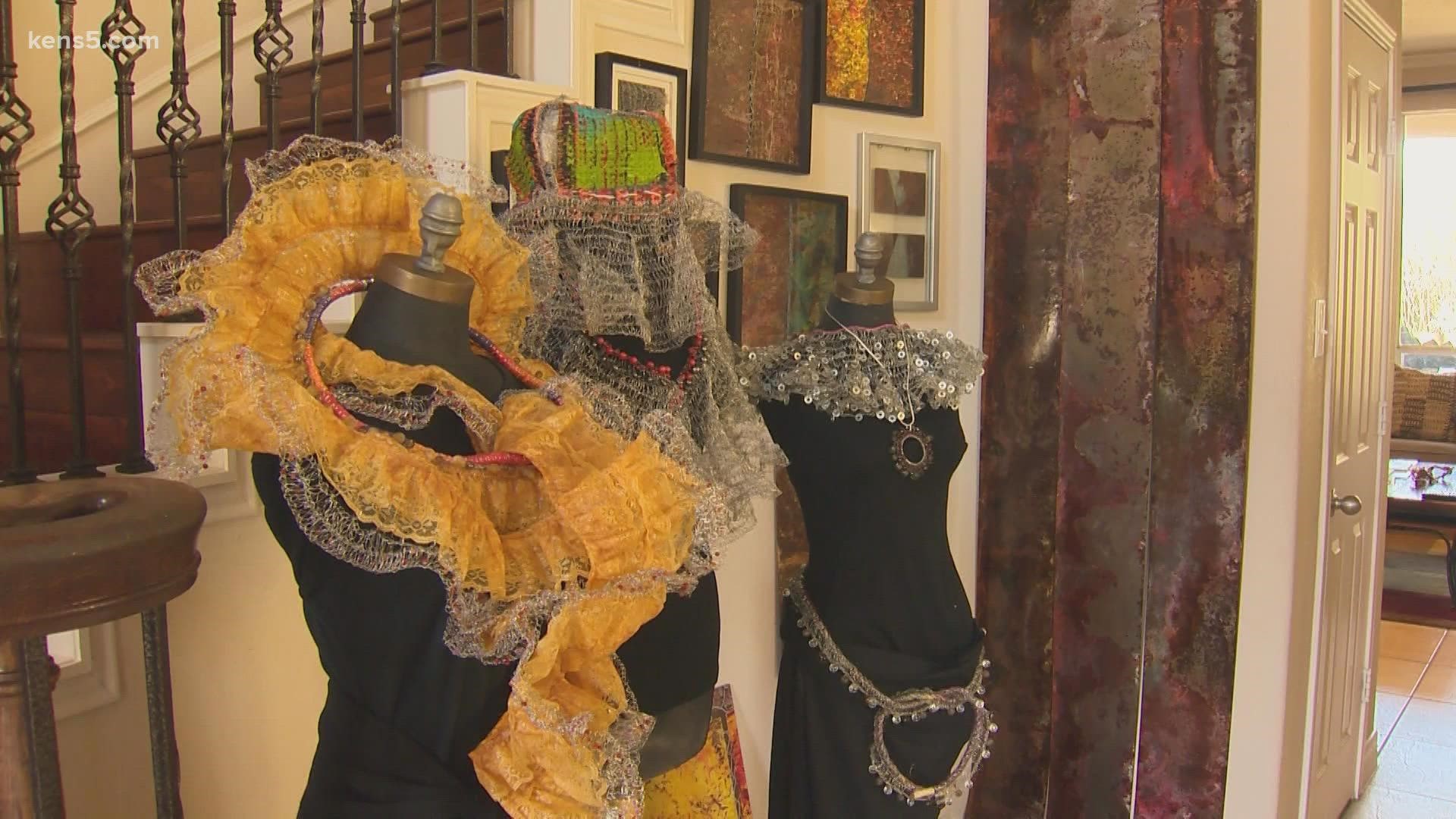SAN ANTONIO — Naomi Wanjiku Gakunga's journey as an artist started when she was only six years old in Kenya. While her mother taught at the local school, her grandmother would take her into a village where her friends would weave baskets. She was immediately impressed and soon began to learn to weave her own baskets.
"By the time I went to the university of Nairobi where I majored in design, I discovered I had already had the initial grounding in the profession," she said.
Wanjiku Gakunga then moved to San Francisco on a scholarship before moving to San Antonio. She has now lived in the Alamo City for 20 years.
While in San Antonio, she recalled seeing recycled cans outside during a visit to a friend's house. The rust and patterns that covered the can reminded intrigued her.
"I was wondering what can I do with these cans? How can I create art?," she said. "That really is what awakened in me the memory of the Mabati women."
Mabati means sheet metal. The Mabati Women's group formed in Kenya in the 1960's.
"In this country in the 60s we are going through the civil rights movement, and in Kenya, the women also going through their own movement where they are empowering themselves here they are becoming independent, fighting for their rights," Wanjiku Gakunga said
Sheet metal became associated with these women as they roofed their homes with Mabati as a way to collect clean water.
She began experimenting with sheet metal in her art as a way to honor her grandmother and the Mabati women.


Wanjiku Gakunga becomes the artist only after mother nature has done her job. She leaves out sheet metal in her backyard for months. The Texas weather will then contribute to it's rusting and coloration.
"When I bring them indoors, I unroll and I'm like a little kid because I don’t know what to expect," she said. "Some of them are darker, some of it is lighter, so once I unroll and see what’s in there, then the creativity process begins."
Each piece comes out uniquely different. Sometimes, Wanjiku Gakunga will cut the sheet metal and paint it. Other times, she only applies a sealant to prevent it from further rusting.




Some of her sheet metal pieces will also include crocheted wire, woven as if it were fabric. "It does give a delicacy to the material that’s otherwise industrial material."
Wanjiku Gakunga said every piece of art she creates has a connection to her home village in Kenya. It is her way of staying connected to her roots thousands of miles away.
"Without history I stand on nothing," she said. "that’s what grounds us, those are our roots."
You can see Wanjiku's artwork on display at the San Antonio Museum of Art.
You can also view more of her artwork here.

